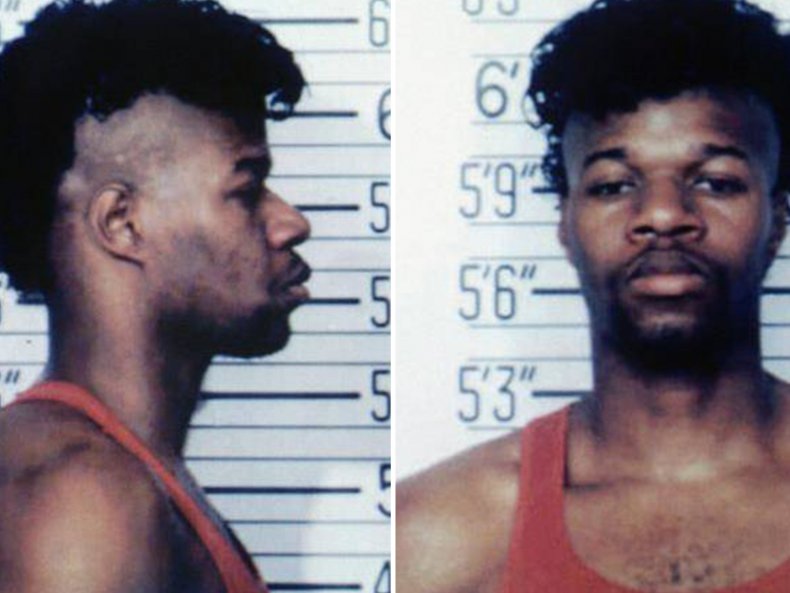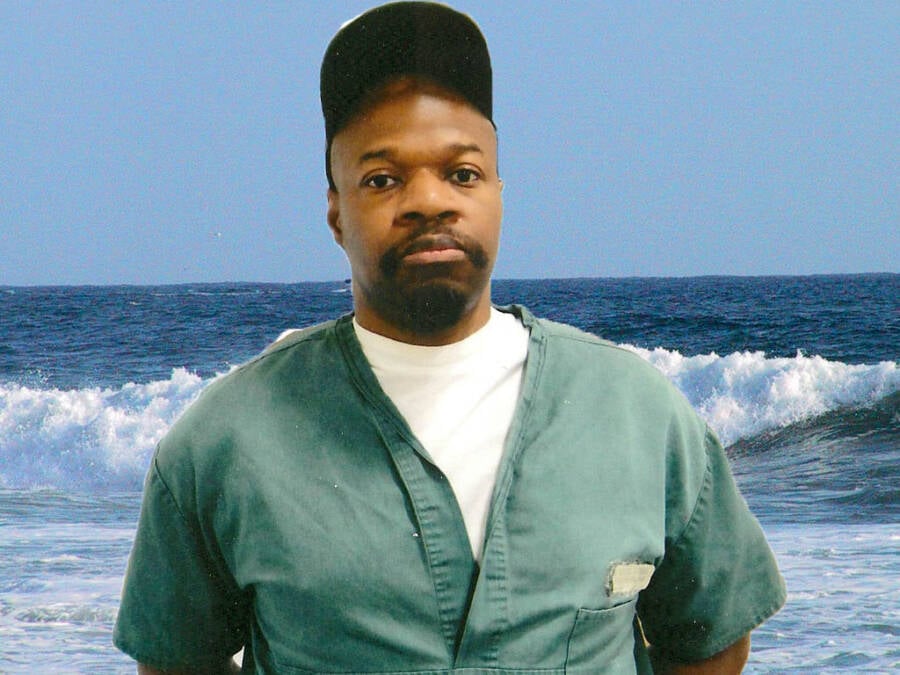Christopher Scarver: The "Dahmer Killer" - Untold Story & Impact
Could an act of violence, carried out within the confines of a prison, be considered an act of justice? Christopher Scarver, a name etched in infamy, became known not for the crime that initially landed him behind bars, but for a brutal act that silenced one of the most notorious serial killers in American history, Jeffrey Dahmer.
Born on July 6, 1969, in Milwaukee, Wisconsin, Scarver's life took a dark turn long before he encountered Dahmer. He was the second of five children, growing up in a challenging environment. Scarver's story, however, is a complex tapestry woven with threads of early struggles, ultimately leading to a life defined by violence and the confines of the prison system.
| Category | Details |
|---|---|
| Full Name | Christopher J. Scarver Sr. |
| Date of Birth | July 6, 1969 |
| Place of Birth | Milwaukee, Wisconsin |
| Education | James Madison High School (Dropped out in 11th grade) |
| Original Crime | Murder of Steve Lohman (Training Program Worker) in 1990 |
| Notable Act | Murder of Jeffrey Dahmer and Jesse Anderson in Columbia Correctional Institution, Wisconsin (1994) |
| Current Status | Serving Multiple Life Sentences at Centennial Correctional Facility, Colorado |
| Literary Work | Published a book of poetry titled "God Seed" in 2015. |
| Reference | Wikipedia |
Scarver's path to notoriety began with a different crime. In 1990, he was convicted of murdering Steve Lohman, a training program worker. He was serving a life sentence at the Columbia Correctional Institution in Wisconsin when fate, or perhaps something else, brought him face-to-face with Jeffrey Dahmer, a name synonymous with unspeakable acts of cannibalism, necrophilia, and murder. Dahmer was already serving multiple life sentences for the gruesome crimes he committed between 1978 and 1991. On November 28, 1994, Scarver, Dahmer, and another inmate, Jesse Anderson, were assigned to a routine work detail, cleaning the gymnasium bathrooms.
Within the walls of the Columbia Correctional Institution, in November 1994, the lives of Christopher Scarver, Jeffrey Dahmer, and Jesse Anderson converged in a violent and fateful encounter. Scarver, armed with a 20-inch metal bar from the prison's weight room, confronted Dahmer while they were assigned to clean the gymnasium bathrooms. The details of the confrontation remain shrouded in the grim realities of prison life, but the outcome was undeniable: Dahmer was brutally bludgeoned to death. Anderson was also attacked and killed. The act sent shockwaves through the prison and beyond, transforming Scarver from just another inmate to a figure of morbid fascination.
The circumstances surrounding this event are complex and multi-layered. Scarver, in interviews, claimed that "God told me to do it." This statement adds a layer of religious fervor and divine intervention to the narrative, further complicating the understanding of his motivations. The "why" behind Scarver's actions is as compelling as the "how." The popular narrative often frames Scarver as a vigilante who delivered a twisted form of justice. The Amazon summary of Scarver's book of poetry, "God Seed," published in 2015, describes it as a "poetic vision of the world as seen through prison walls."
The incident also shines a light on the volatile environment of a correctional facility. Prison populations are often a mix of individuals with a history of violence, mental health issues, and a constant struggle for power and survival. The dynamics between inmates can shift rapidly, influenced by factors like race, gang affiliations, and personal grudges. In this case, the presence of Dahmer, whose crimes had horrified the nation, likely created an even more charged atmosphere.
- Buffalo Wild Wings Thursdays Bogo Boneless Wings More
- Nyt Crossword Says Who Answer September 25 2024 Simon
In the immediate aftermath, the story of Scarver's actions was recounted through various sources. Scarver was born on July 6, 1969, in Milwaukee, Wisconsin. The events of November 28, 1994, are a key piece of his story. The weapon used, a 20-inch metal bar, speaks volumes about the brutality of the attack, Scarver was born as the second of five children. He was originally in prison for the 1990 murder of Steve Lohman, a training program worker. The incident occurred in Columbia Correctional Institution, Wisconsin.
Beyond the immediate acts, the story is also about the idea of justice. Dahmer's crimes were so heinous that many people believed that the legal system was not enough. Scarver's act, in a way, became a form of retribution, a violent conclusion to a story filled with unimaginable pain and suffering inflicted by Dahmer. The question of whether Scarver's actions were justice is one that continues to be debated.
Scarver's case also prompts a discussion about the nature of prison itself. Correctional facilities are designed to house and rehabilitate offenders, but they can also be breeding grounds for violence and despair. The environment of a prison can exacerbate existing mental health issues and create new ones. The very act of imprisonment, of being stripped of one's freedom and autonomy, can push individuals to the brink.
Christopher Scarver's story also has a literary side. In 2015, he published a collection of poetry from prison titled "God Seed." This work offers an insight into his perspective, the internal world of a man grappling with his past and his present circumstances. Scarver's poetry is more than a collection of words; it is a window into his mind, offering a glimpse of his journey from despair to hope. His writing reveals a man who is attempting to find good in others, and his purpose, according to various accounts, is to earn an education and create a second chance for those who want one within the prison system. The act of creation, the act of writing, offered Scarver a means to express himself, to reflect on his life and the events that defined it.
The legacy of Christopher Scarver is complex and multifaceted. He is remembered as the man who killed Jeffrey Dahmer, but his story is far more nuanced than that simple descriptor suggests. Scarver's actions speak of a life marked by both darkness and a search for meaning, a search that continues within the confines of prison walls. His story is a stark reminder of the fragility of life and the enduring power of human nature, even in its darkest forms.
The details are brutal, and the acts committed are difficult to comprehend. The account of Dahmer's death at the hands of Scarver is a stark reminder of the violence that can occur within the prison system. The act itself was a culmination of the circumstances, the environment, and the individuals involved. It raises important questions about the nature of justice, the conditions within prisons, and the capacity for both good and evil within the human heart. The case, with all its complexities, remains a chilling example of the human condition, where violence and the search for meaning can converge in the most unexpected of places.
Scarver's early life, born into a family in Milwaukee, Wisconsin, marked a beginning to a life that was later consumed by violence. His birth, on July 6, 1969, was the start of a journey that would take him through the darkest corridors of the American justice system. His actions are a testament to the power of the human mind and its capacity for both good and evil. He was born in a city that would ultimately shape his destiny.
The circumstances surrounding Dahmer's death have often been the subject of speculation and debate. Dahmer's crimes were so heinous that many believe Scarver's actions were a form of twisted justice. The account of that day in the Columbia Correctional Institution highlights the constant tension and potential for violence within the prison system. Scarver's actions, as claimed, were done by God, raising questions of morality and the role of faith in such situations. The location itself, the Columbia Correctional Institution, became a symbol of that convergence of violence.
The incident and Scarver's life are a reflection on themes of redemption, violence, and the human experience. The event occurred in November 1994, and the details have been a constant source of interest. Scarver's act reflects the darkness within society and the consequences of violence, both for the victims and the perpetrators. The aftermath of that day continues to echo, reminding us of the fragility of life and the complexities of human morality.
The story is an American tale. The events occurred within the American prison system, a microcosm of society itself, and reflects the broader issues of crime, punishment, and justice. Scarver is described as an American convicted murderer. Scarver's case shows the many aspects of human nature and the interplay of factors that can lead to violence and tragedy. The case is a reminder of the complexities of life and the consequences of our choices.
- Exploring Av4us News Search Insights Latest Updates
- Ohios Capital City Columbus Its History Learn More

Why Jeffrey Dahmer's Killer Murdered Him—'He Crossed the Line'

Jeffrey Dahmer Christopher Scarver where is the killer now?

Кой и защо уби Джефри Дамър Chronicle.bg